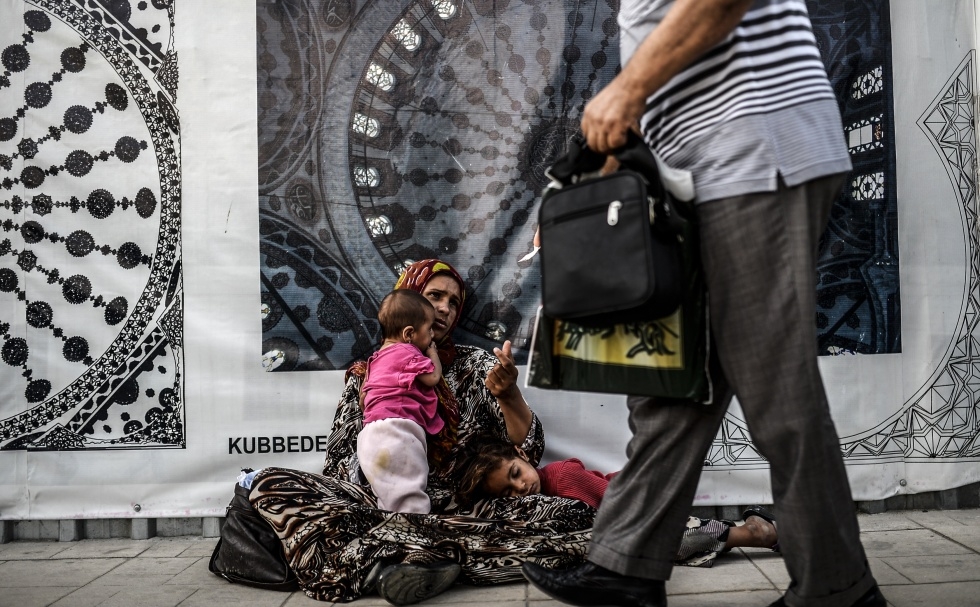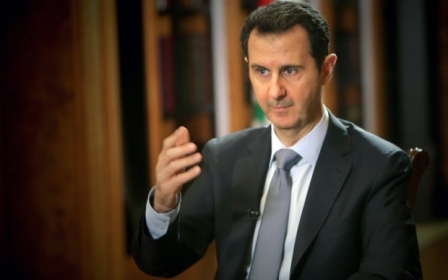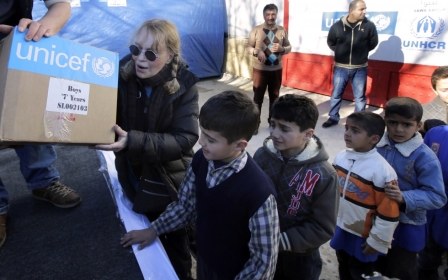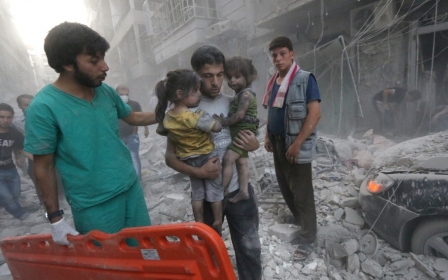Turkey to take 'drastic measures' against Syrian refugees

ISTANBUL - Turkey will take "drastic measures" to deal with the influx of tens of thousands of Syrian refugees into its biggest city Istanbul, including forcibly sending them to camps in the southeast, the city's top official said Wednesday.
Istanbul governor Huseyin Avni Mutlu said there were now 67,000 Syrian refugees in the city and legislation would now be adopted that could see them effectively expelled from the city of 15 million to refugee camps closer to Syria.
Mutlu said authorities would take "drastic measures" to contain the negative consequences of Syrian refugees in Istanbul, including sending those begging in the streets back to the refugee camps "without their consent".
His comments came amid signs of growing tensions over the increasingly visible presence of Syrian refugees in Turkey, as well as protests in several southeastern cities.
"In a very short time, we will take new and drastic measures," Mutlu said at an official meeting.
"We are working on legislation that will enable us to send the refugees to the camps even without their consent," he said, adding that 500 were already sent back to a tented camp in southeast Turkey last month.
'Concentration camp'
Turkey, a vocal critic of Syrian President Bashar al-Assad, currently hosts more than a million Syrian refugees after Prime Minister Recep Tayyip Erdogan announced an open-door policy for those fleeing the conflict.
Fewer than a third of these are living in camps along the volatile border and hundreds of thousands are eking out a precarious existence in big cities, including Istanbul.
Syrian refugees have become a familiar sight in Istanbul, with whole families huddled together on street corners and begging for money in upscale and tourist areas.
Although refugees living in Istanbul are "much more qualified" than those living elsewhere in Turkey, Mutlu claimed that those begging in the street are disturbing other parts of the Syria refugee community.
"Representatives of the Syrian community in Istanbul are unhappy that their compatriots are begging in Istanbul. They say those people are damaging their image as a refugee," he said.
Mutlu said Istanbul authorities knew where refugees were living, as well as their education and income levels, and would consider this information in determining further action.
His comments sparked a furious debate on social media, with some accusing Mutlu of discrimination and others using the chance to complain bitterly about Syrian refugees.
"Isn't (a camp on the border) a kind of concentration camp for refugees?" prominent social studies researcher Foti Benlisoy asked on Twitter.
"They have invaded the busiest streets of the city. How long do we have to put up with this horrible situation?" asked another Twitter user, Sebla Tanik.
Tensions erupt into protests
Tensions over the influx of Syrians into Turkey - where in some towns refugees now outnumber locals - have boiled over in recent days and police clashed with demonstrating locals on Sunday in the southeastern city of Kahramanmaras.
On Monday, a group of masked men wielding knives and clubs also attacked several shops run by Syrian refugees in Adana, another southern city.
In the latest flare-up on Tuesday, locals attempted to lynch a Syrian driver after he hit a Turkish family with his car, injuring a mother and her five-year-old daughter.
Although largely praised for its past generosity, Turkey's open-door policy towards Syrian refugees has recently been criticised as unsustainable.
"It is becoming increasingly clear that refugees are not about to return home anytime soon," said a joint US-Turkey think tank report last month.
A May report from the Turkish NGO Human Rights and Solidarity with the Oppressed said the situation for women refugees outside official camps was particularly worrisome.
Female refugees in big cities are often exploited by employers or forced into prostitution, it said.
Middle East Eye propose une couverture et une analyse indépendantes et incomparables du Moyen-Orient, de l’Afrique du Nord et d’autres régions du monde. Pour en savoir plus sur la reprise de ce contenu et les frais qui s’appliquent, veuillez remplir ce formulaire [en anglais]. Pour en savoir plus sur MEE, cliquez ici [en anglais].




